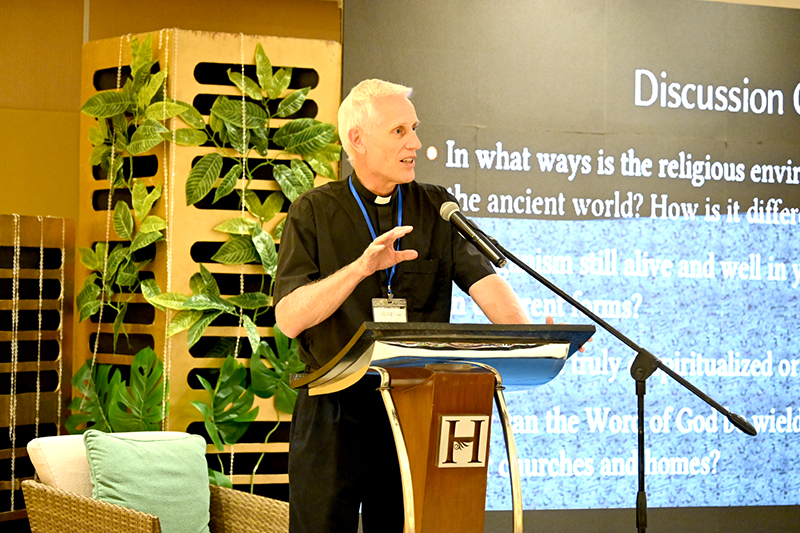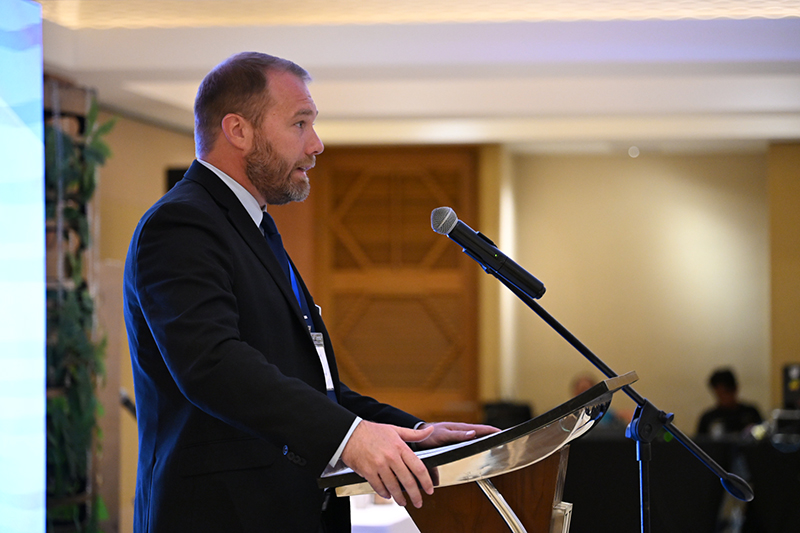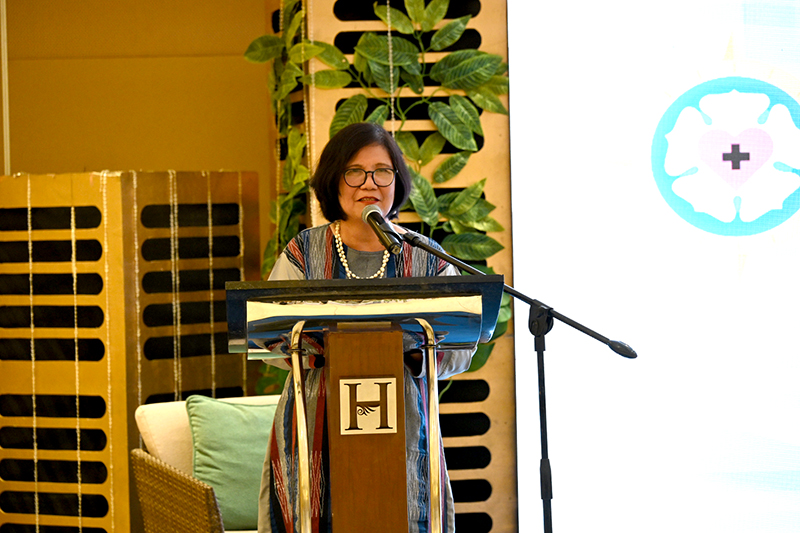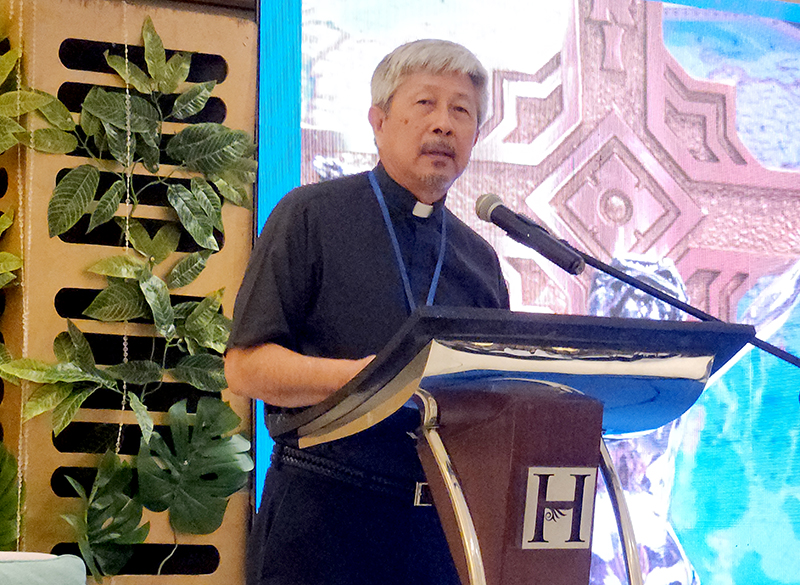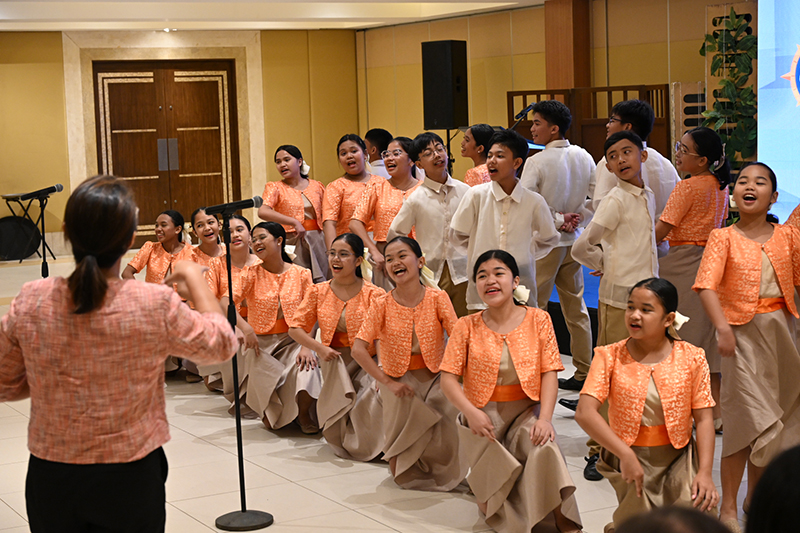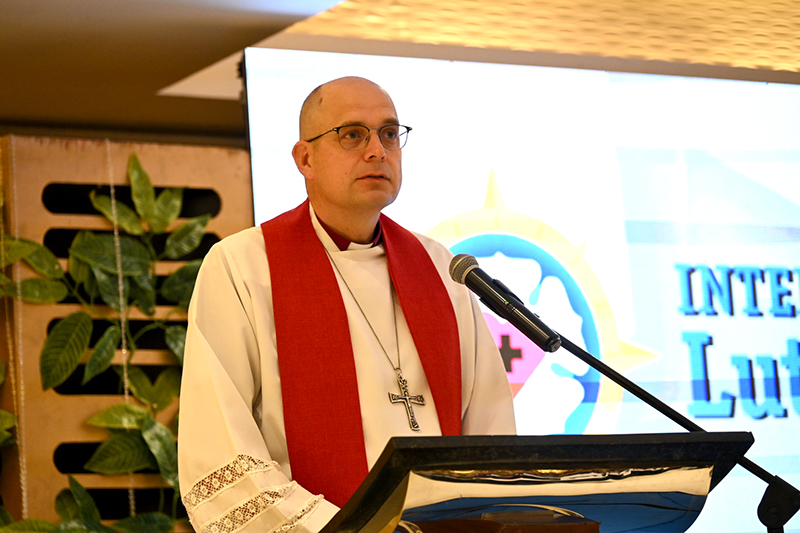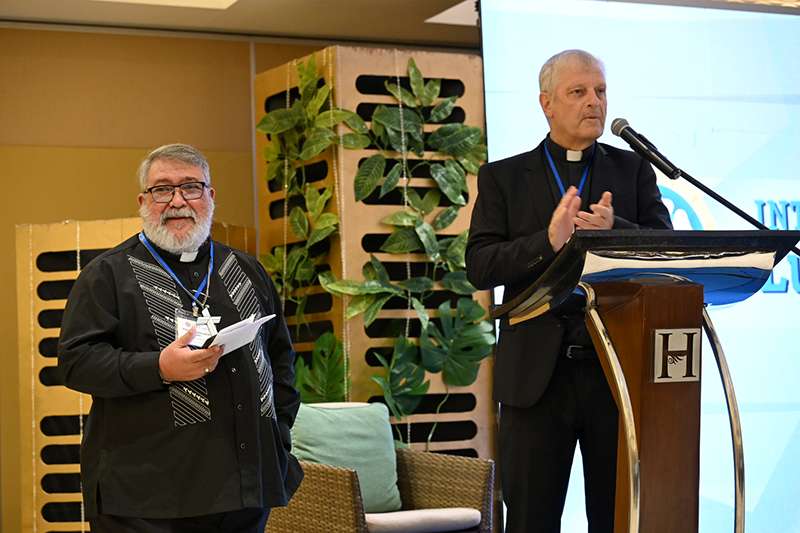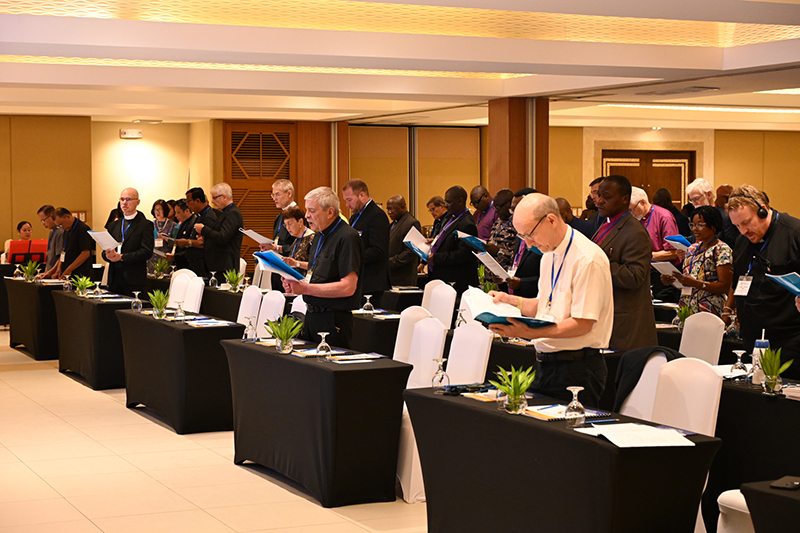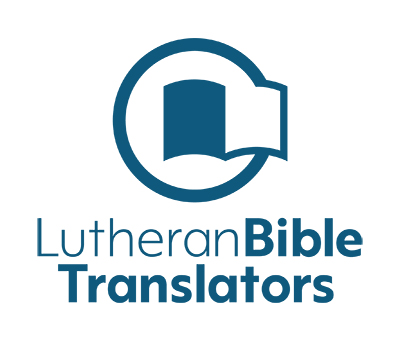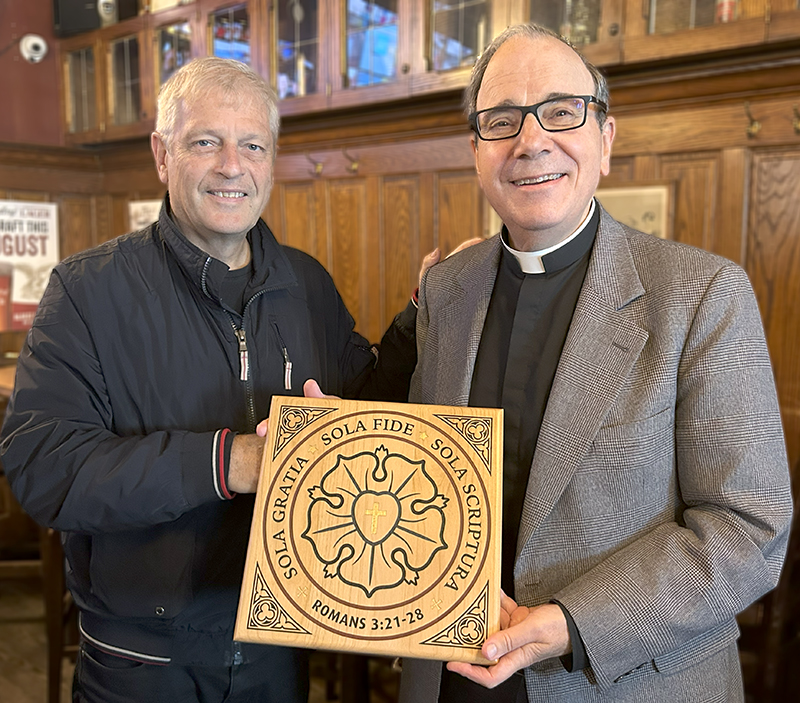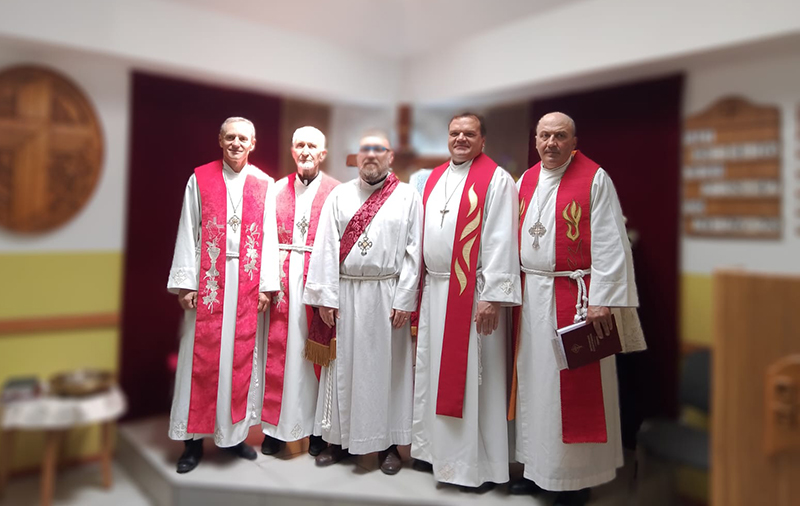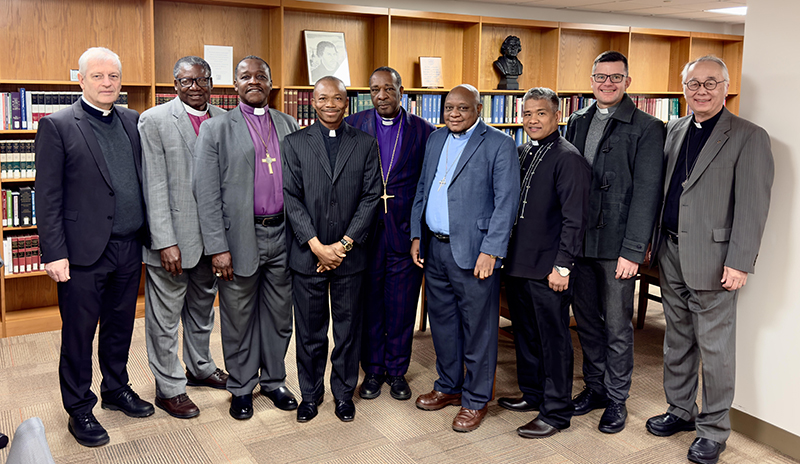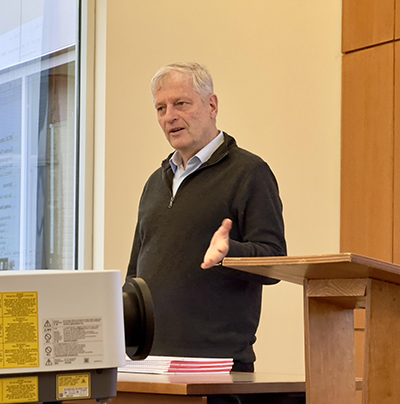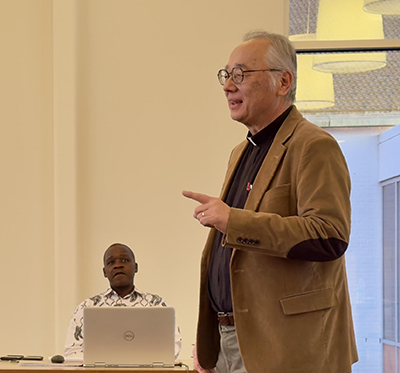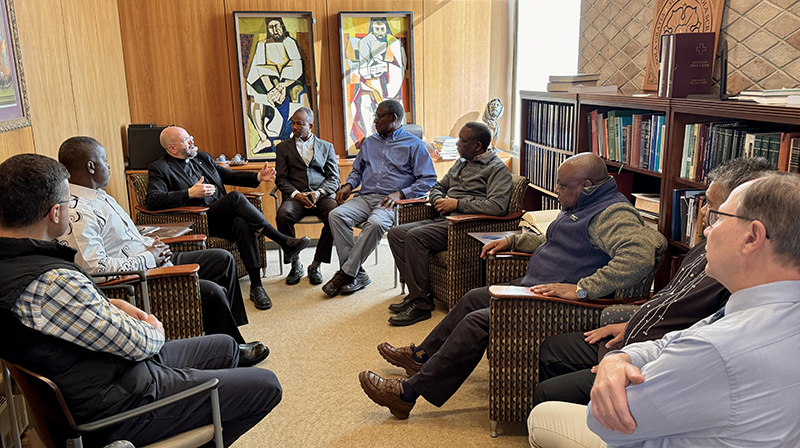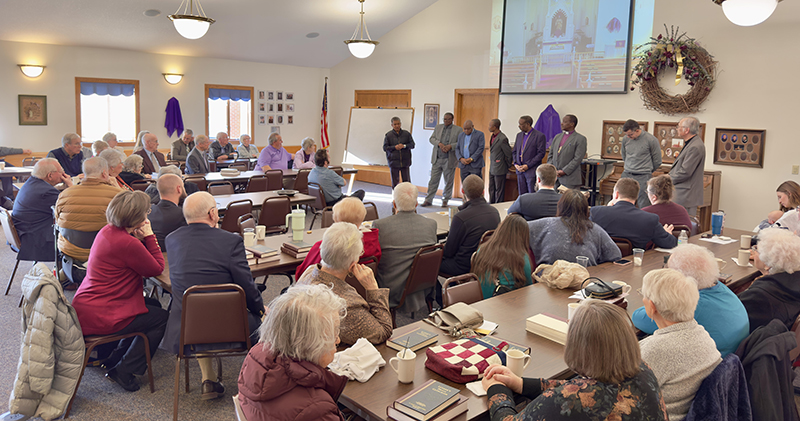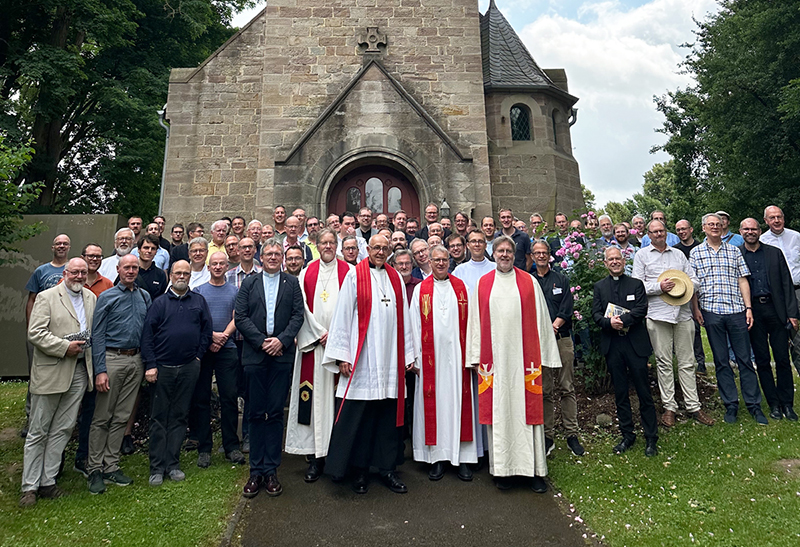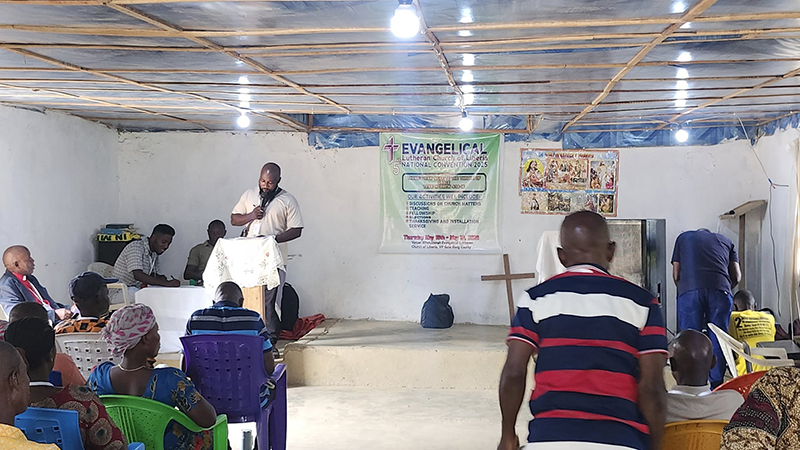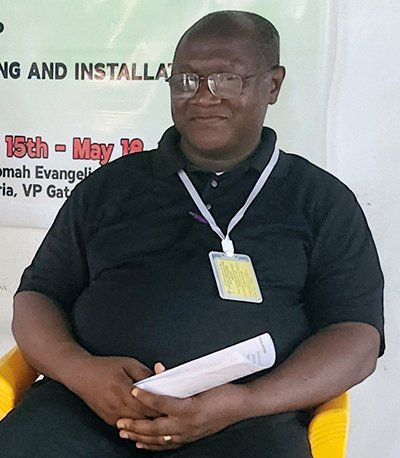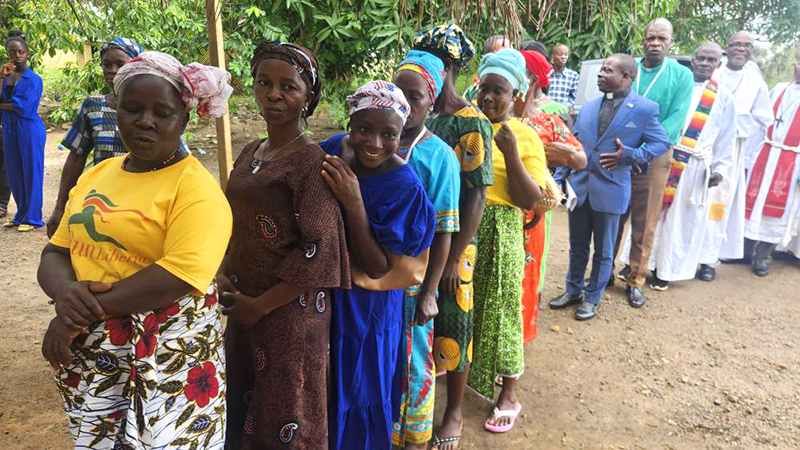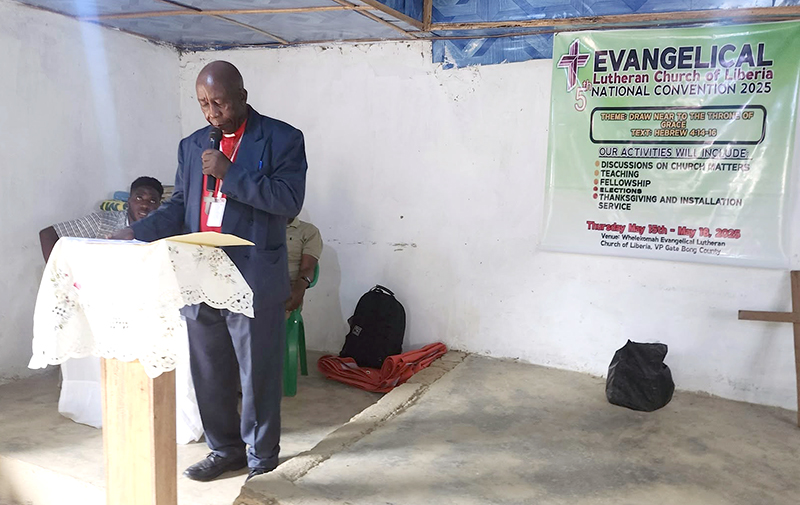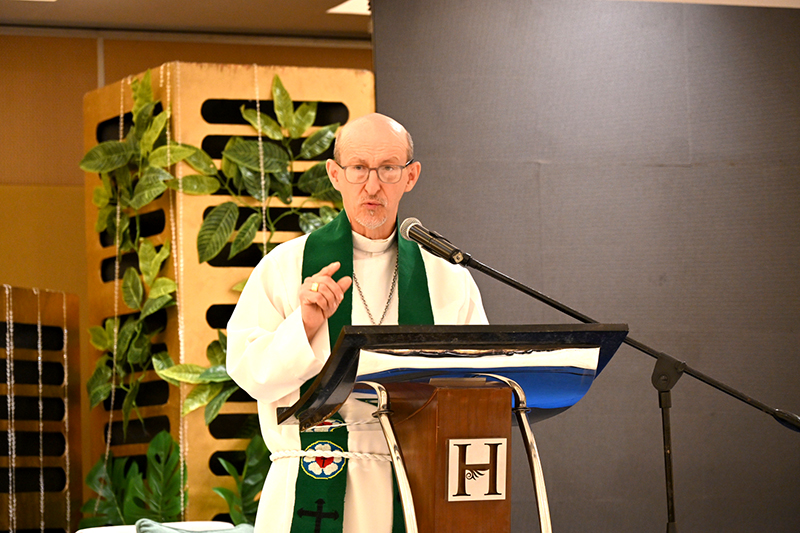
PHILIPPINES – The second day of the International Lutheran Council’s (ILC) 2025 World Conference began with a service of Matins, with Rev. Michael Blodgett serving as liturgist and President Alton Alceu Figur of the Evangelical Lutheran Church of Paraguay (IELPA) serving as preacher.
President Figur’s text was John 19:25-27, reflecting on Mary’s sorrow as she looked upon the death of her Son on a cross. In this account, President Figur said, “we are given the scene—the portrait—of the human misery that sin has brought into the world.” And sin continues to bring misery to our world today.
But Jesus’ death brings us hope, President Figur continued, because He assumed our flesh “and all the guilt it carries.” His suffering for the sins of humanity brings hope for this fallen world. “We are sent into this sin-broken world to cooperate in its restoration—restoration that is possible only by looking to the cross of the Saviour,” he said. “And there we see Christ as Mary saw Him—suffering out of love—teaching us that we too, in love for others, must take up our cross and follow Him as we “testify to this great and wonderful gift: salvation in Christ.”
Keynote address: The Old Temple and the New
The conference continued with the second of Rev. Dr. Thomas M. Winger’s keynote lectures, this time on “The Old Temple and the New,” drawing on Ephesians 2:22. Dr. Winger highlighted the connections between the worship of the Old Testament and that of the New Testament, in contrast to that of the “Pagan Temple” he had discussed in his first lecture.
Dr. Winger began by detailing the various rites which were part of the daily service in the Old Testament. “We have a tendency to think of Old Testament worship as a man-made attempt to appease God,” he noted, “but this is not a correct way to think of it.”
“These acts were not something that the Israelites were doing for the benefit of God,” he continued. “On the contrary, God served His people through all of the rites of the liturgy that He instituted for their benefit.”
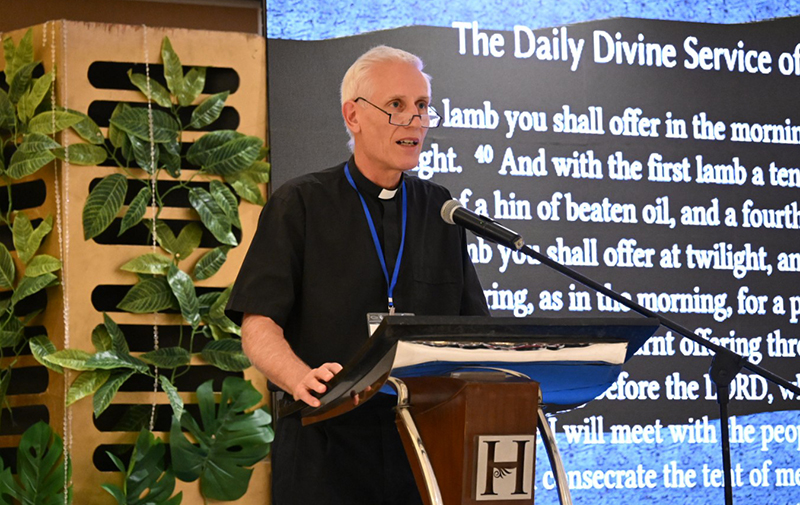
Dr. Winger explained that the Old Testament rites ultimately point to Christ and to the new worship of the Christian Church. Such rites had several purposes, including “to teach God’s people the serious consequences of sin… to provide cleansing sanctification and forgiveness… to separate God’s people from the pagan world… to foretell the coming Messiah (the most important purpose)… to prefigure the pattern of New Testament worship… [and] to prepare for the fellowship of heaven.”
Old Testament worship points, then, to New Testament worship—that period when the Gentiles would be incorporated into the worship life of God’s people. “In the history of Israel, the Gentiles had become isolated from this divine gift by their exclusion from Temple worship,” Dr. Winger noted. Later tradition had developed barriers to keep Gentiles from entering into the Temple. But “the Old Testament prophesied that in the Messianic age the Gentiles would again be brought close to God and into the precincts of His Temple” and that “the Lord’s presence [would] no longer be confined to Jerusalem, but [would] be wherever the Lord’s name is proclaimed.”
“Thus, we ought to understand Paul’s proclamation of a new spiritual Temple in Christ as more than just a figurative description of the unity of God’s people,” Dr. Winger suggested. “It is a picture of God’s people gathered in worship. The Church is a new Temple, but spiritually constructed.” This new Temple of Christian worship is marked by the “equal inclusion of all people… Trinitarian in pattern… spiritual sacrifices… where Christ is found with His Name and Word… and Word and Sacraments.”
ILC Membership and and a Presentation by CPH
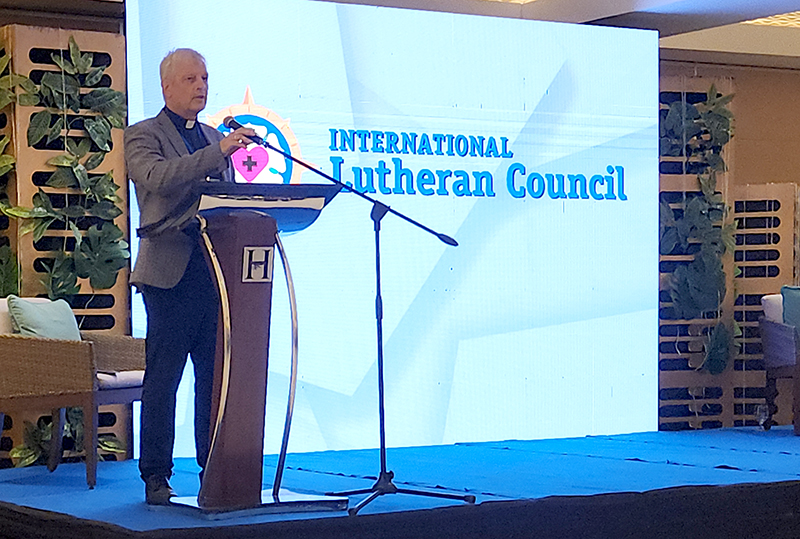
The morning continued with a presentation by the ILC’s General Secretary, Rev. Dr. Klaus Detlev Schulz. Dr. Schulz highlighted the nature of the International Lutheran Council and its work. He further discussed what it means to be a member of the ILC, as well as how the membership application works.
The morning ended with a presentation by Concordia Publishing House (CPH) President/CEO Jonathan D. Schultz and Vice President of Publishing, Rev. Dr. Jacob Corzine. The two highlighted the history of CPH as well as its present work today, ranging from major publications like The Lutheran Study Bible, Lutheran Service Book, and The Book of Concord to major series like Luther’s Works and the Concordia Commentary series to new resources for children and new digital apps.
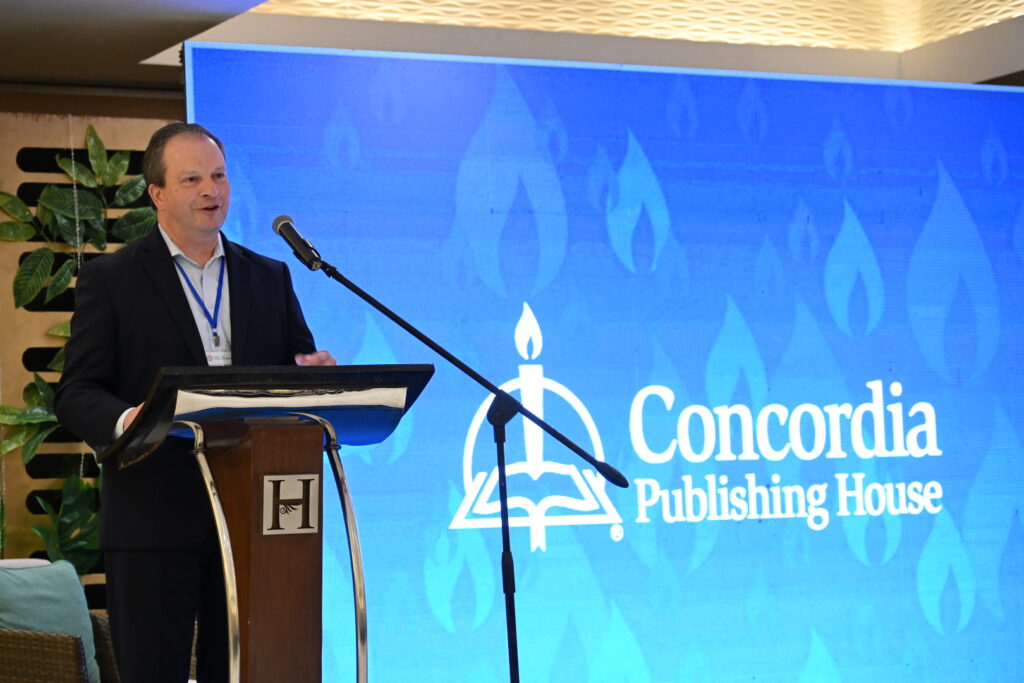
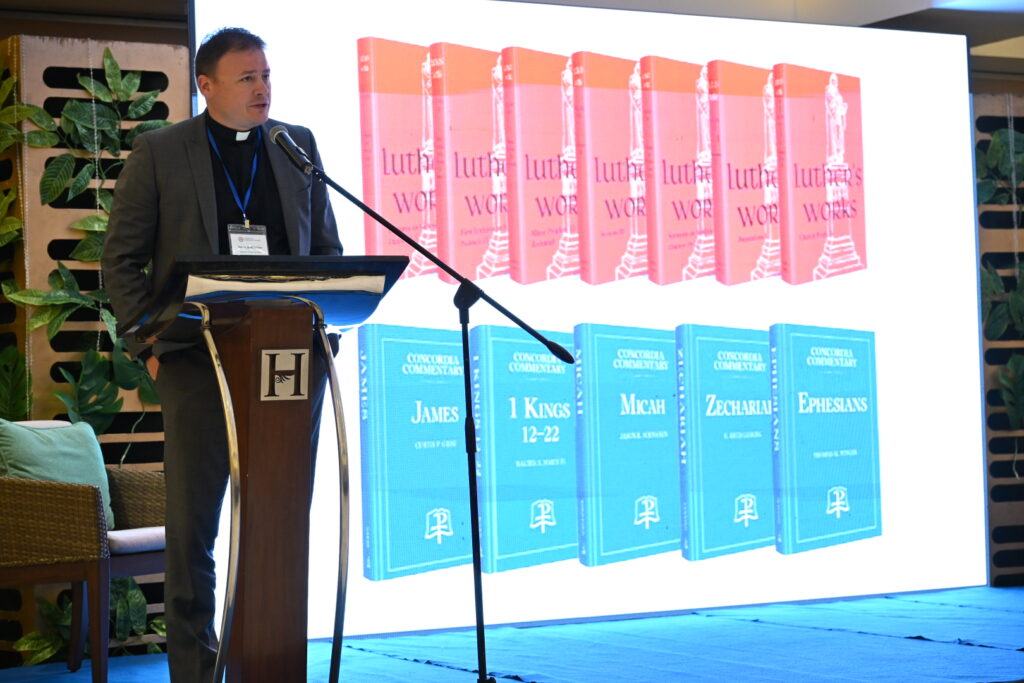
The representatives of CPH invited participants in the conference to connect with CPH and discuss possibilities in which their church bodies might be able to benefit from CPH’s extensive Lutheran resources.
An example of that support was shared by Alison Blodgett, the ILC’s Business Manager and Treasurer. She noted that CPH had recently provided grants to assist the ILC in building up pastors’ libraries around the world through the Lutheran Leadership Development Program (LLDP). To date, CPH has worked with the ILC to distribute books in Ghana, the Philippines, South Africa, South Sudan, and Tanzania.
———————
For more news from the ILC’s 2025 World Conference, click here.

